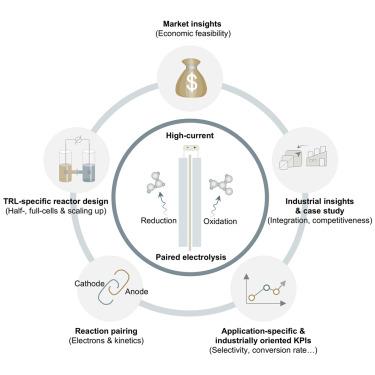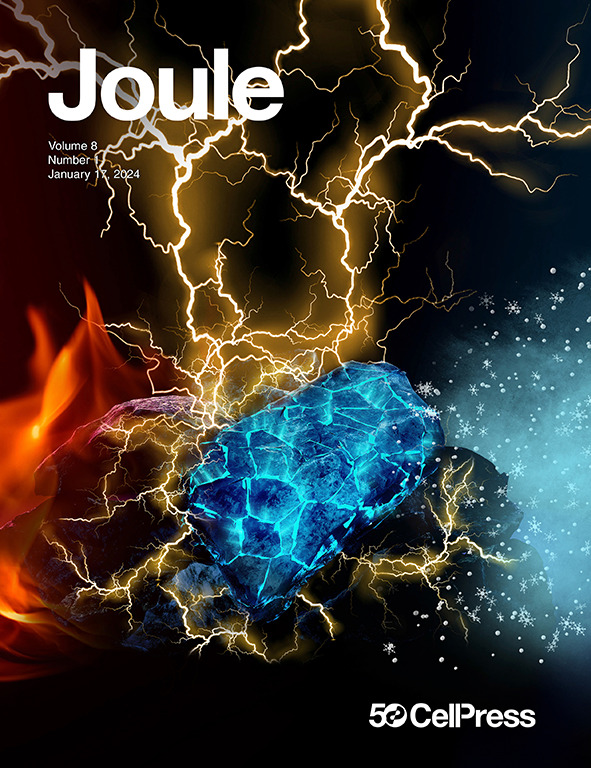Prospects for paired electrolysis at industrial currents
IF 35.4
1区 材料科学
Q1 CHEMISTRY, PHYSICAL
引用次数: 0
Abstract
Paired electrolysis at industrial current densities offers an energy-efficient and sustainable alternative to thermocatalytic chemical synthesis by leveraging anodic and cathodic valorization. However, its industrial feasibility remains constrained by system integration, including reactor assembly, asymmetric electron transfer kinetics, membrane selection, mass transport limitations, and techno-economic bottlenecks. Addressing these challenges requires an engineering-driven approach that integrates reactor architecture, electrode-electrolyte interactions, reaction pairing, and process optimization. Here, we discuss scale-specific electrochemical reactor assembly strategies, transitioning from half-cell research to full-scale stack validation. We develop reaction pairing frameworks that align electrocatalyst design with electrochemical kinetics, enhancing efficiency and selectivity under industrial operating conditions. We also establish application-dependent key performance indicators and benchmark propylene oxidation coupled with hydrogen evolution reaction or oxygen reduction reaction against existing industrial routes to evaluate process viability. Finally, we propose hybrid integration models that embed paired electrolysis into existing industrial workflows, which could alleviate adoption barriers.


工业电流下配对电解的前景
工业电流密度下的配对电解通过利用阳极和阴极增值,为热催化化学合成提供了一种节能和可持续的替代方案。然而,它的工业可行性仍然受到系统集成的限制,包括反应器组装、不对称电子传递动力学、膜选择、质量传输限制和技术经济瓶颈。解决这些挑战需要一种工程驱动的方法,将反应器结构、电极-电解质相互作用、反应配对和工艺优化集成在一起。在这里,我们讨论了特定规模的电化学反应器组装策略,从半电池研究过渡到全尺寸堆叠验证。我们开发了反应配对框架,使电催化剂设计与电化学动力学相结合,提高了工业操作条件下的效率和选择性。我们还建立了与应用相关的关键性能指标和基准丙烯氧化,以及针对现有工业路线的析氢反应或氧还原反应,以评估工艺可行性。最后,我们提出了混合集成模型,将配对电解嵌入到现有的工业工作流程中,这可以减轻采用障碍。
本文章由计算机程序翻译,如有差异,请以英文原文为准。
求助全文
约1分钟内获得全文
求助全文
来源期刊

Joule
Energy-General Energy
CiteScore
53.10
自引率
2.00%
发文量
198
期刊介绍:
Joule is a sister journal to Cell that focuses on research, analysis, and ideas related to sustainable energy. It aims to address the global challenge of the need for more sustainable energy solutions. Joule is a forward-looking journal that bridges disciplines and scales of energy research. It connects researchers and analysts working on scientific, technical, economic, policy, and social challenges related to sustainable energy. The journal covers a wide range of energy research, from fundamental laboratory studies on energy conversion and storage to global-level analysis. Joule aims to highlight and amplify the implications, challenges, and opportunities of novel energy research for different groups in the field.
 求助内容:
求助内容: 应助结果提醒方式:
应助结果提醒方式:


